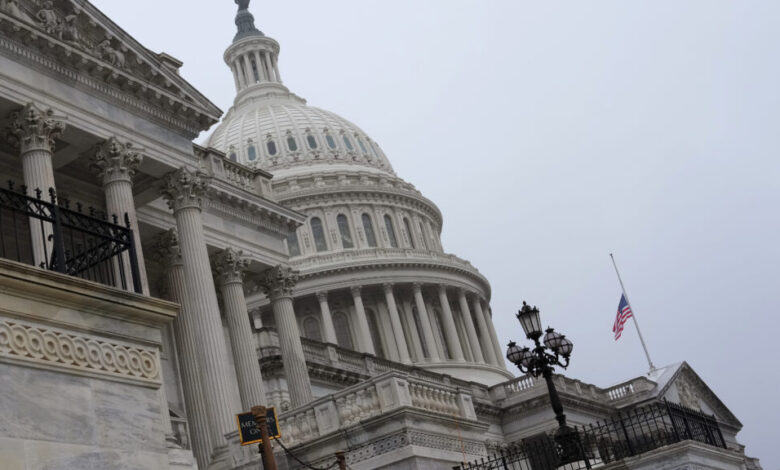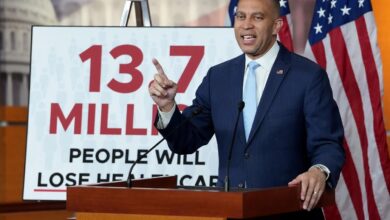Trump tax bill: Health care impact revealed in CBO report

The tax bill proposed by House Republicans has stirred controversy due to its potential impact on health insurance coverage. According to projections from nonpartisan congressional scorekeepers, nearly 11 million people could lose their health insurance if the bill is passed. This loss of coverage is seen as a key source of savings that would help finance President Trump’s tax cuts.
In addition to the 11 million people at risk of losing insurance, another 5.1 million individuals could become uninsured due to expiring Affordable Care Act subsidies and new rules proposed by Trump’s health department. This would bring the total number of people without insurance to 16 million over a decade, a figure comparable to the risk of coverage loss during the 2017 attempt to repeal the Affordable Care Act.
Democrats have seized on these projections to criticize Republicans for prioritizing tax cuts for the wealthy over the health care needs of low-income individuals. However, Republicans argue that the bill targets those who are unemployed and capable of working, asserting that vulnerable populations such as pregnant women, children, and individuals with disabilities will not be affected.
The bill is projected to increase the federal deficit by $2.4 trillion over a decade, largely due to the extension of Trump’s tax cuts and the implementation of new ones. This includes cuts to federal spending on health coverage totaling more than $1 trillion.
One of the major components of the bill is the proposed cuts to Medicaid, which could result in 7.8 million people losing coverage. The rest of the coverage losses would primarily stem from changes to the Affordable Care Act’s exchanges, affecting groups such as immigrants without legal status and refugees.
The bill also includes provisions that impose work requirements on Medicaid recipients, with an estimated 5.2 million adults expected to lose coverage as a result. These requirements would mandate individuals aged 18 to 64 without dependents or disabilities to work at least 80 hours per month to maintain their coverage.
Overall, the bill represents significant cuts to federal health care programs, with hospitals expected to advocate for changes in the Senate to mitigate enrollment losses. Senators are likely to make modifications to the bill, particularly regarding concerns about Medicaid cuts, as they work towards passing the legislation before key deadlines.
In conclusion, the House Republicans’ tax bill has sparked intense debate over its potential impact on health insurance coverage and federal health care programs. The bill’s provisions, including Medicaid cuts and reforms to the Affordable Care Act, are projected to have far-reaching consequences for millions of Americans. As the legislative process continues, stakeholders on all sides will continue to advocate for their positions and seek changes to the bill.





